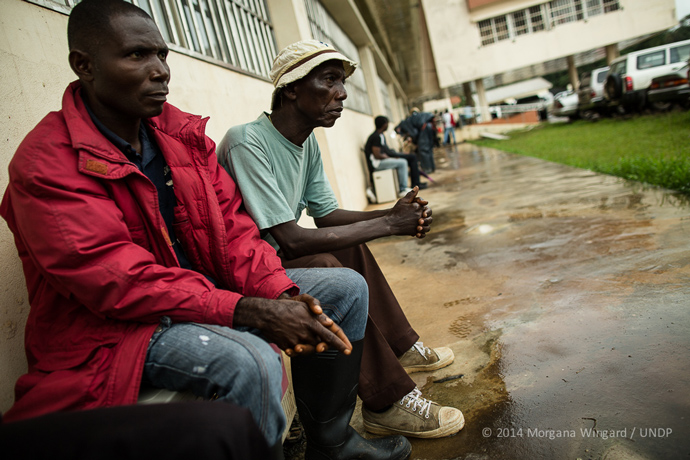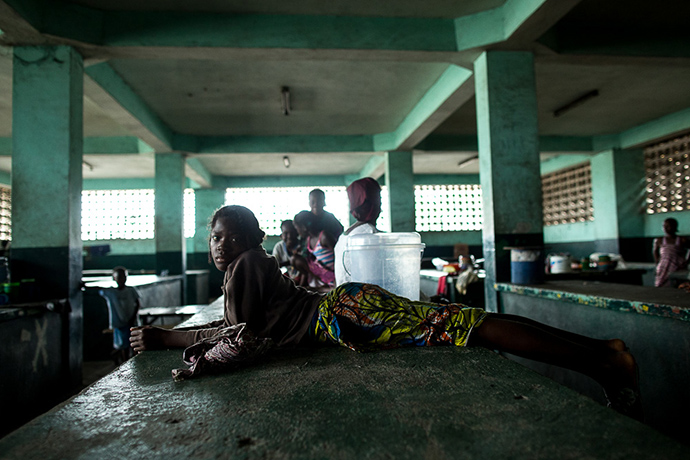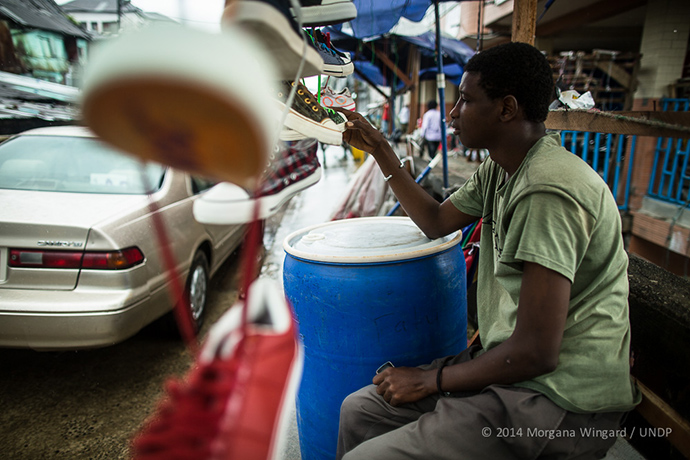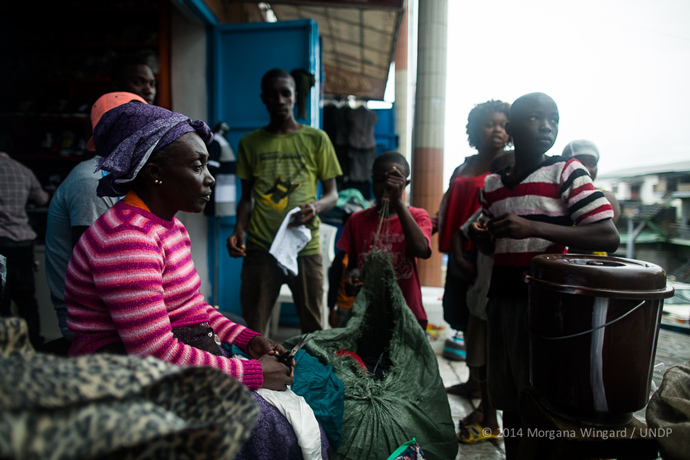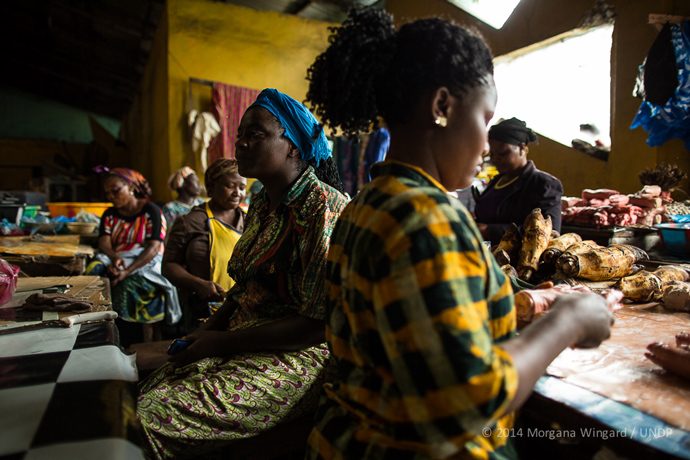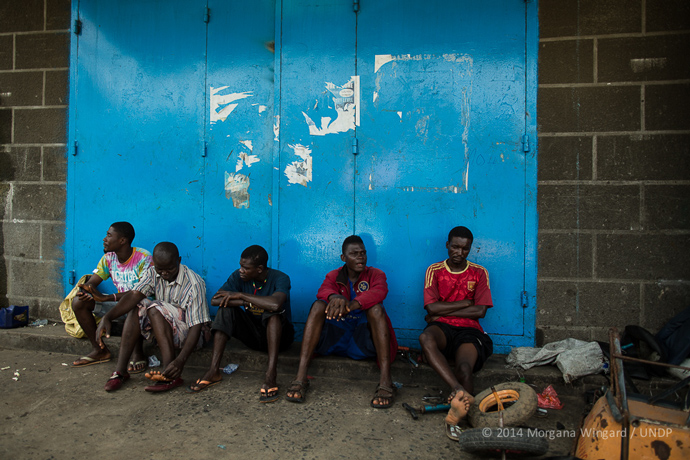PHOTOS + WRITING BY MORGANA WINGARD
MONROVIA, Liberia—While the Ebola virus is having devastating impacts on Liberia’s health system, beyond the spotlight it is having an equally damaging impact on the economy. We have yet to know the full extent of the impacts, but the warning signs are already showing.
Sales have plummeted in Waterside Market—an economic hub in downtown Monrovia where Liberians trek to buy commodities like fresh fish from the Atlantic Ocean, school shoes, or used household goods imported from America. And at this time of year, many parents should be back-to-school shopping. However, with all of Liberia’s schools closed and many parents now jobless, vendors wait for days sometimes before selling a single ware.
I stopped by the Ministry of Health and Social Welfare one morning and met Emmanuel Patrick, 55. He was an instructor at the Salvation Army School until the government closed the schools due to the epidemic. Now, to support his six children, he travels to the Ministry every morning in the hopes of obtaining a day labor job working in the warehouse. But there is not enough work, and the income doesn’t cover the cost of increasing living expenses.
You can find stories like Emmanuel’s on every corner of the nation’s capital and throughout Liberia: Ordinary Liberians, who, while not infected with the virus, are suffering its impacts.
According to USAID Assistant Administrator for Democracy, Conflict and Humanitarian Assistance Nancy Lindborg, “Economic growth projections have been cut by more than half in all three of the most impacted countries [Liberia, Sierra Leone, Guinea], and the cost of living is rising—particularly in Liberia where inflation is expected to nearly double by the end of the year.”
To maintain economic and political stability, it is paramount that Liberians have the basics to survive. The United States is providing support for basic needs and food aid to boost access to food and water, especially for vulnerable communities like West Point. USAID has provided $6.6 million worth of American-grown food aid to support the U.N. World Food Program’s regional response. This photo shows USAID-donated rice being prepared for distribution on September 19, 2014, in West Point—a township of 20,000 to 80,000 that has been one of the hardest hit by the Ebola epidemic.
